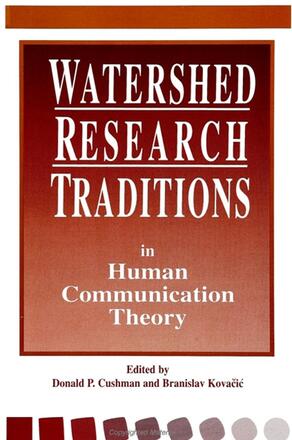
Watershed Research Traditions in Human Communication Theory
Alternative formats available from:
Focuses on and presents watershed research traditions in human communication (interpersonal, organizational, and mass communication).
Description
This sampling of watershed research traditions in interpersonal, organizational, and mass communication manifests how communication theory is developed, defended and extended at a philosophical, theoretical and practical level of inquiry from a plurality of research perspectives.
The book includes the foundational works of Pearce, Cronen, and Associates on the coordinated management of meaning; Berger, Gudykunst, and Associates on uncertainty and anxiety reduction theory; Cushman, Nicotera and Associates on the communication rules involved in establishing and maintaining interpersonal relationships; Delia, Clark, and Associates on constructivism; Deetz, Mumby, and Associates on critical theory; Desmond and Associates on mass communication theory; Sanders and Gottman on communication sequences; Cushman, King, and Associates on high-speed management; and Philipsen and Associates on the ethnography of communication.
Donald P. Cushman is Professor of Communication at State University of New York at Albany, and coeditor of the SUNY series, Human Communication Processes. He is the author of many books including Communication and High-Speed Management with Sarah Sanderson King; and Winning: Continuous Improvement Theory in High Performance Organizations with Krzysztof Obloj and Andrzej K. Kozminski also published by SUNY Press. Branislav Kovacic is Assistant Professor of Communication at the University of Hartford. He is the editor of New Approaches to Organizational Communication also published by SUNY Press.
Reviews
"This book's unique contribution is that each communication theory presented for discussion is examined at three levels--philosophical, theoretical, and practical. The approach has made it possible for the authors to reveal some of the hidden dimensions of each theory examined. It's going to be a very useful and appealing book due to this unique approach."— Yanan Ju, Central Connecticut State University